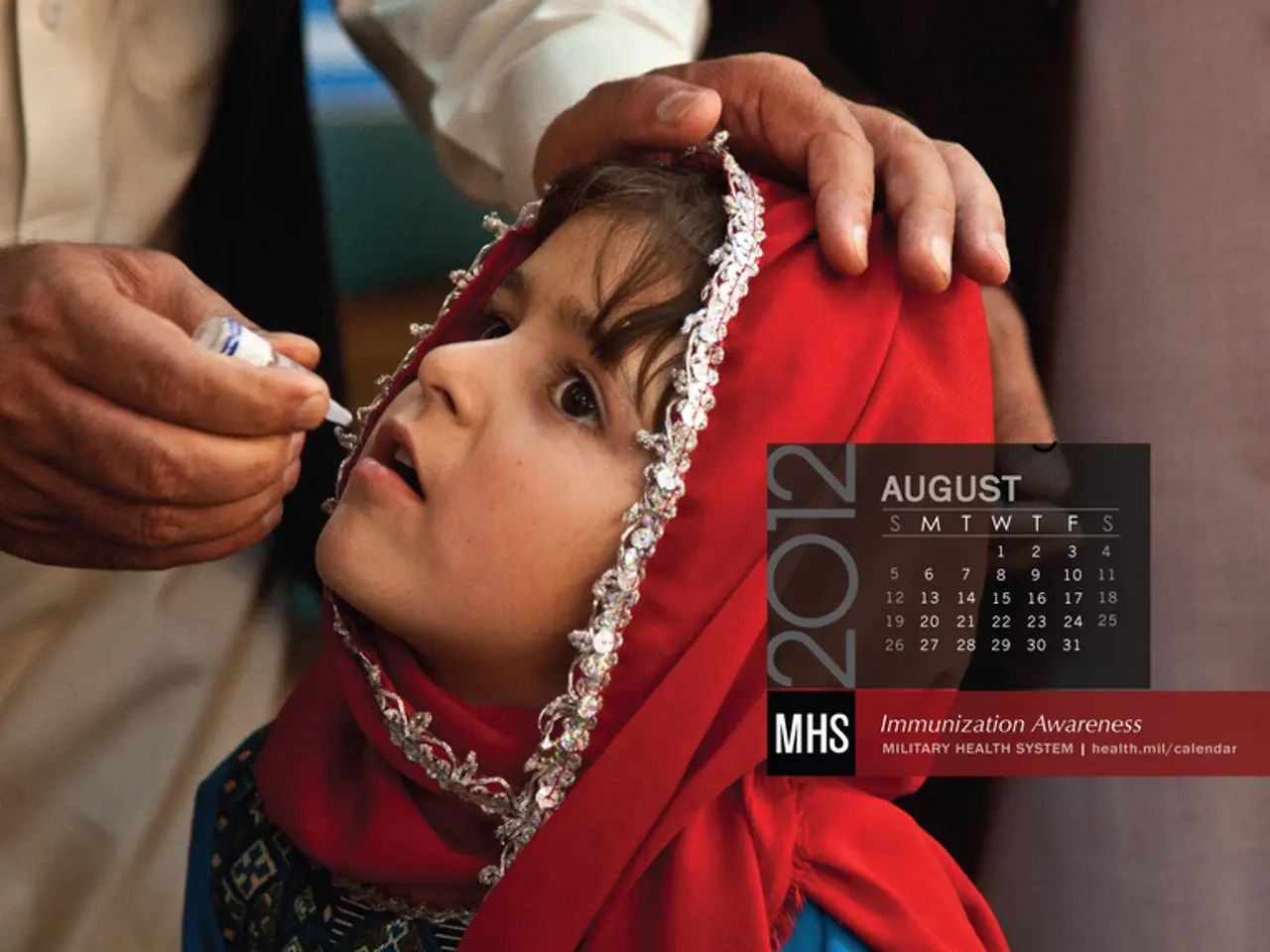Connection Between COVID-19 Vaccination and Heart Failure: What's the Association?
Heart Complications and COVID-19 Vaccinations: A Closer Look
A recent case study has brought attention to the potential link between COVID-19 vaccinations and heart complications, specifically congestive heart failure. However, it's important to note that heart complications after vaccination are rare and primarily involve myocarditis and pericarditis, which are more common in young males [1][2].
In a 2022 article, a 47-year-old male developed shortness of breath five days after receiving the second dose of the Pfizer vaccine [1]. Initially, doctors misdiagnosed him with allergies and bronchitis, but after several weeks, his symptoms worsened, and he was eventually diagnosed with congestive heart failure.
Despite this case, the European Society of Cardiology recommends COVID-19 mRNA vaccination for people with heart failure, as the vaccines are linked to a reduced risk of death among this group [2]. This recommendation is supported by evidence suggesting that the risk of heart complications from actual COVID-19 infection is substantially higher across all groups compared to the rare risks of vaccine-associated myocarditis or pericarditis [3].
Large studies show that the risk of myocarditis after COVID-19 infection is many times greater than after vaccination. For example, young men aged 18-29 have a 7-8 times higher risk of myocarditis from infection than from vaccination, and males aged 12-17 have a 2-6 times higher risk from infection [3].
Moreover, vaccinated individuals experience fewer cardiovascular events, such as heart attacks and strokes, compared to unvaccinated people. This indicates that vaccination reduces overall cardiovascular risk by preventing severe COVID-19 [2].
The FDA has updated Pfizer and Moderna vaccine labels to warn about myocarditis occurring at a rate of about 8 cases per 1 million vaccine recipients aged 6 months to 64 years. The highest risk is in males aged 12 to 24 [1]. These cases are typically mild and resolve quickly with minimal treatment [5].
It's worth noting that the risk of myocarditis may be higher after the Moderna mRNA vaccine compared to the Pfizer-BioNTech vaccine [1]. Additionally, there is a very small risk of thrombosis with thrombocytopenia syndrome (TTS) after the AstraZeneca and Johnson & Johnson/Janssen vaccines, but the risk of blood clots from COVID-19 is higher than with either of these vaccines [1].
Postural orthostatic tachycardia syndrome (POTS) is a condition that causes a fast heart rate when people move from lying down to standing up. Tachycardia, or a fast heart rate, can be a common side effect after receiving an mRNA COVID-19 vaccine, but usually resolves by itself [1].
There is less information on whether POTS occurs after COVID-19 vaccination, but a study found there may be an increased risk of POTS after COVID-19 illness [6]. People with existing heart conditions may be at risk of severe COVID-19, and experts recommend the COVID-19 vaccination for people with heart conditions [7].
The Centers for Disease Control and Prevention (CDC) recommends that people with heart problems receive COVID-19 vaccinations, including those with heart disease, cardiovascular risk factors, and a history of previous heart attack or stroke [7].
In conclusion, while COVID-19 vaccines carry a very low but real risk of heart inflammation mostly in young males, the risk of heart complications from actual COVID-19 infection is substantially higher across all groups. This evidence supports that the benefits of COVID-19 vaccination for heart health clearly outweigh the rare risks of vaccine-associated myocarditis or pericarditis [1][2][3][5].
People should contact a doctor if they experience signs of heart failure, which include shortness of breath, difficulty breathing when lying down, swelling in the feet, ankles, legs, or stomach, fatigue, and weakness [8]. It's also important to remember that the National Institutes of Health (NIH) report a very small risk of heart complications, such as myocarditis, after getting the COVID-19 vaccination [1].
[1] https://www.mayoclinic.org/diseases-conditions/covid-19/in-depth/covid-19-vaccine/art-20506821 [2] https://www.escardio.org/The-ESC/Press-Office/Press-releases/European-Society-of-Cardiology-recommends-COVID-19-vaccination-for-people-with-heart-failure [3] https://jamanetwork.com/journals/jamacardiology/fullarticle/2782588 [4] https://www.ncbi.nlm.nih.gov/pmc/articles/PMC8432039/ [5] https://www.cdc.gov/coronavirus/2019-ncov/vaccines/recommendations/adverse-events.html [6] https://www.ncbi.nlm.nih.gov/pmc/articles/PMC8393585/ [7] https://www.cdc.gov/coronavirus/2019-ncov/vaccines/recommendations/immunocompromised.html [8] https://www.heart.org/en/health-topics/heart-failure/symptoms-of-heart-failure
- The link between COVID-19 vaccinations and heart complications, such as congestive heart failure, has been highlighted in a case study, but heart complications after vaccination are rare, and they primarily involve myocarditis and pericarditis, which are more common in young males.
- COVID-19 mRNA vaccines, despite a potential link to myocarditis and pericarditis, are recommended by the European Society of Cardiology for people with heart failure because they are linked to a reduced risk of death in this group.
- Large studies have shown that the risk of myocarditis after COVID-19 infection is significantly higher than after vaccination, especially in young males, where the risk of myocarditis from infection is 7-8 times higher than from vaccination.
- Vaccinated individuals have fewer cardiovascular events, such as heart attacks and strokes, compared to unvaccinated people, indicating that vaccination reduces overall cardiovascular risk by preventing severe COVID-19.
- The FDA has updated vaccine labels for Pfizer and Moderna, warning about myocarditis occurring at a rate of about 8 cases per 1 million vaccine recipients aged 6 months to 64 years, with the highest risk in males aged 12 to 24.
- People with existing heart conditions, including heart disease, cardiovascular risk factors, and a history of previous heart attack or stroke, should receive the COVID-19 vaccination as recommended by the Centers for Disease Control and Prevention.




